Book Reviews by Genre: Classics
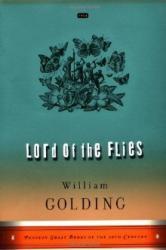
I liked Lord of the Flies for its realism and its detail. The concept of boys stranded on an island was interesting to read, while the realism of the boys’ reactions kept it alive. The detail was fabulous, the interactions well thought out, and the diversity was well done. I loved this book, not just for reading for my writing class, but outside of school as well.
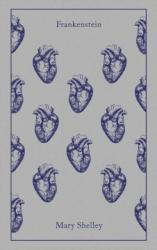
Frankenstein, or, the Modern Prometheus is a great gothic read. Like any other gothic novel, it is dark and mysterious, with elements of horror in it. While it had a rocky start for me, I soon got lost in the characters, with their wants and needs. The detail was amazing, while the wording was, em, very 17th century, but that makes the book no worse. All around, this is a riveting book that will capture your attention immediately.
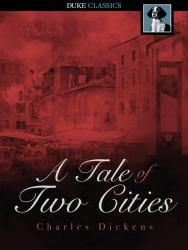
A Tale of Two Cities by Charles Dickens is one of the most popular books of all time, with over 200 million copies sold to date. The novel is set in London and Paris before and during the French Revolution and depicts the plight of the French peasantry demoralized by the French aristocracy, and many unflattering social parallels with life in London during the same period. The main characters are Charles Darnay, a French aristocrat who falls victim to the indiscriminate wrath of the revolution despite his virtuous nature, and Sydney Carton, a British barrister who endeavors to redeem his ill-spent life out of his unrequited love for Darnay's wife, Lucie Manette.
A Tale of Two Cities
One of Charles Dickens's most famous novels, A Tale of Two Cities is also one of his shorter (and better) ones. It begins with an unflattering portrait of an England overrun by highwaymen and courts which are almost as rapacious, and soon shows us a France where things are even worse. Nowhere does Dickens demonstrate his marvelous ability to capture moods and sentiments better than in his depiction of a seething, oppressed populace on the verge of boiling into violence.
And now that the cloud settled on Saint Antoine, which a momentary gleam had driven from his sacred countenance, the darkness of it was heavy—cold, dirt, sickness, ignorance, and want, were the lords in waiting on the saintly presence—nobles of great power all of them; but, most especially the last. Samples of a people that had undergone a terrible grinding and regrinding in the mill, and certainly not in the fabulous mill which ground old people young, shivered at every corner, passed in and out at every doorway, looked from every window, fluttered in every vestige of a garment that the wind shook. The mill which had worked them down, was the mill that grinds young people old; the children had ancient faces and grave voices; and upon them, and upon the grown faces, and ploughed into every furrow of age and coming up afresh, was the sigh, Hunger. It was prevalent everywhere. Hunger was pushed out of the tall houses, in the wretched clothing that hung upon poles and lines; Hunger was patched into them with straw and rag and wood and paper; Hunger was repeated in every fragment of the small modicum of firewood that the man sawed off; Hunger stared down from the smokeless chimneys, and started up from the filthy street that had no offal, among its refuse, of anything to eat. Hunger was the inscription on the baker's shelves, written in every small loaf of his scanty stock of bad bread; at the sausage-shop, in every dead-dog preparation that was offered for sale. Hunger rattled its dry bones among the roasting chestnuts in the turned cylinder; Hunger was shred into atomics in every farthing porringer of husky chips of potato, fried with some reluctant drops of oil.
After spending eighteen years in the Bastille, a French country physician is released and allowed to emigrate to England, where he is reunited with the daughter he has never met. Lucie Manette, typical of Dickens women, is a pure-hearted angel who is instantly devoted to him despite never having known him. Through various plot twists, Lucie marries Charles Darnay, who turns out to be the expatriate nephew of the Marquis who had Doctor Manette imprisoned, in a backstory eventually revealed to us with an even more improbable plot twist.
Once the Revolution begins, Charles Darnay is lured back to Paris to save the life of one of his former servants. Naturally, he is promptly imprisoned and put on trial. His family, including Lucie and their daughter, as well as pretty much the entire cast of the novel thus far, follows him, and are all put in peril of meeting Lady Guillotine. It was the popular theme for jests; it was the best cure for headache, it infallibly prevented the hair from turning grey, it imparted a peculiar delicacy to the complexion, it was the National Razor which shaved close: who kissed La Guillotine, looked through the little window and sneezed into the sack. It was the sign of the regeneration of the human race. It superseded the Cross. Models of it were worn on breasts from which the Cross was discarded, and it was bowed down to and believed in where the Cross was denied.
Dickens's stories are full of improbable plot twists. Characters who met once will always meet again. The coincidences in A Tale of Two Cities almost defy the reader's suspension of disbelief -- but it's Dickens, and Dickens can be forgiven a lot. He shows the pitiless brutality of the French aristocracy and the suffering of the people until your sympathies are entirely with them, and when the tumbrils begin rolling through the streets you can't but think that the aristos had it coming and then some. But then the Terror is unleashed -- and personified in the form of Madame Defarge -- and the oppressed turn just as brutal and pitiless. This is the only way Dickens could have brought our sympathies back to the main characters, who after all, have lived pretty safe and privileged existences even if they weren't the evil "Monseigneur" who ran children beneath the wheels of his carriage. And let's face it, Charles Darnay really picks up the Idiot Ball when he goes back to Paris.
I doubt there are many people who don't know how the novel ends, but while it's a story of redemption and self-sacrifice, I was not nearly as touched by Sydney Carton's heroism as I was by the Madame Defarge vs. Miss Pross
smackdown, which I think is one of Dickens's best climaxes ever, and which none of the film adaptations (below) did justice:
"You might, from your appearance, be the wife of Lucifer," said Miss Pross, in her breathing. "Nevertheless, you shall not get the better of me. I am an Englishwoman."
Madame Defarge looked at her scornfully, but still with something of Miss Pross's own perception that they two were at bay. She saw a tight, hard, wiry woman before her, as Mr. Lorry had seen in the same figure a woman with a strong hand, in the years gone by. She knew full well that Miss Pross was the family's devoted friend; Miss Pross knew full well that Madame Defarge was the family's malevolent enemy.
"On my way yonder," said Madame Defarge, with a slight movement of her hand towards the fatal spot, "where they reserve my chair and my knitting for me, I am come to make my compliments to her in passing. I wish to see her."
"I know that your intentions are evil," said Miss Pross, "and you may depend upon it, I'll hold my own against them."
Each spoke in her own language; neither understood the other's words; both were very watchful, and intent to deduce from look and manner, what the unintelligible words meant.
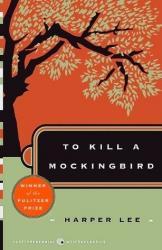
The amount of description in To Kill a Mockingbird by Harper Lee is
amazing. Like, Sherlock Holmes good. The characters are well mapped out, the
interactions felt thought through, and the relationships are believable. I
personally didn’t get all the detail the first read through, just from
enjoying the characters too much. The history is realistic, considering the
time period and how poorly the blacks were treated. All things considered,
this is an engaging read with some actual history.
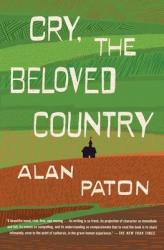
Cry, the beloved country

It can be difficult to judge a book, especially one as critically acclaimed as Ringworld, with 50 years of scientific and societal progress between when it was written and today. On the one hand, there are many scientific concepts explored in this book that we almost take for granted in modern sci-fi. On the other hand, the stink of 1970s misogyny doesn’t age very well, and this book is a prime example. Even today, sci-fi authors are still trying to dig out from the sexist tropes that books like this perpetuated throughout the genre. It’s a complicated, uphill battle, but we’re trying to be better than this.
For 1970, I do have to admit that the science presented here is relatively revolutionary. Unfortunately, the descriptions were occasionally a bit dry and felt more like reading a textbook than a sci-fi adventure. I could appreciate how Niven described the indescribable scale of something as massive as the Ringworld. Additionally, the alien races were well-rounded and had complex physiologies and backstories that made the group dynamic entertaining to read. However, the only thing well-rounded about the women in this book were their bodies.
Aside from the considerable age difference between the two romantic leads being an acceptance of pedophilia, it’s clear that Niven only thought of women as objects. This is disappointing because the story could have been more interesting if the female characters had any agency other than being driven by pleasure or luck. I have to recognize that this book is still a snapshot of its temporal circumstances, but that doesn’t necessarily excuse it in today’s society. Acknowledging that it’s from the 1970s, modern works should be more aware of these flaws when using such a pivotal science fiction book as a base for today’s books.
Some great science with not-so-great misogyny, I give Ringworld 3.0 stars out of 5.

Brave New World, written by Aldous Huxley, is a personal interpretation of society’s attitude towards technology. It takes place in a future, either dystopian or utopian, where technology reigns supreme, and humans are created in a lab. It offers commentary on where humanity’s values are placed, and where they should be placed. The characters have to choose whether or not conformity is the best option, and whether numbing the pain is better than understanding the suffering. Written in the 1930s, Huxley has a surprisingly modern style and understanding, and knowing that he was unsure of the future makes it an even more exciting book.
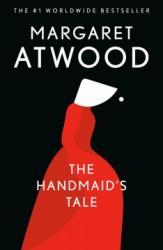
This novel followes the life of "Offred" who is part of the first wave of women during the Gilead regime. "Offred", whose real name is never revealed in the book, is a Handmaid whose sole responsiblity is to have children to sustain the rapidly declining Caucasion population. She tries to accept her life as a Handmaid, but is haunted by memories of the time before Gilead when she had a family and was free from the oppressive society she currently lives in.
I really liked how Atwood discloses minimal details about "Offred" which makes it clear that what is happening to her can happen to any woman. The novel is set in a utopian society, and it's very interesting to read the rationale behind the establishment of the Gilead regime and how sexism and anti-feminist retoric is a constantly looming problem in society. The novel is told through "Offred's" perspective, and personally, I felt she was a bland character, but her story itself was interesting. The book hangs off on a cliffhanger, and I'm definitely going to read the sequel and watch the Hulu adaption after!
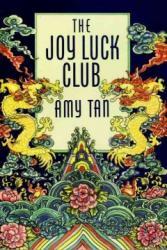
The Joy Luck highlights mother-daughter relationships in the midst of generational conflicts. The Joy Luck daughters, Jing-mei, Waverly, Rose, and Lena, are first generation Chinese-Americans living in San Francisco during the 1980's. They feel their mothers are overbearing and do not understand their desire for independence. Ironically, their mothers feel they are losing their Chinese identity and became Americanized.
I love this book! The book is structured like the traditional Chinese game mahjong, and each of the daughters and mother's stories are complex and thought-provoking. Although it's set back in the 80's, a lot of its themes regarding mother-daughter relationships and intergenerational conflicts are relevant amongst first-generation immigrants and families today. Among the eight main characters, Jing-mei is my favorite, because she's really the only daughter that fully embraces her hyphenated identity.
This book is different because it tells the story of eight women who are so similar yet so different at the same time. I really recommend this to anyone looking for a female dominated novel!
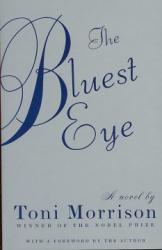
The Bluest Eye is about a young African-American girl named Pecola living in 1940's Ohio. Pecola lives with her brother and abusive parents who constantly tell her she is ugly because of her dark skin and kinky hair. On top of that, the children at her school bully her for the fact that her father is an alcoholic. All her life, Pecola has wanted blue eyes to feel pretty. Her only friends, Freida and Claudia try to defend her against the colorism in their community, but Pecola is unable to embrace her features and becomes obsessive over her desire for blue eyes.
One of the reasons I read this book is because of Morrison's writing style and her thematic elements. The book is very intellectually stimulating and gave me better insight into colorism and how it is still largely prevalent today in the African-American community. I really liked how Morrison used a young girl as a main character to show how these feelings of low-esteem and poor body image are started at a young age, and how the people around us influence our thoughts and feelings.
There are a lot of complex characters and you get to hear each of their stories about why they're the way they are. Claudia is my favorite character because she represents women and girls who challenge our ideas of beauty. The ending was sad, but it really brought light to how damaging our obsession with beauty is.
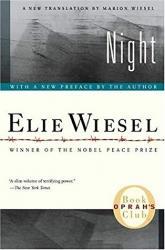
Night by Elie Wiesel is a powerfully graphic novel that tells the story of a Hungarian Jew's experiences in various concentration camps within Nazi Germany during World War II. I really enjoyed this book. It was very well written and hard to put down. This book not only tells of Wiesel's experiences in concentration camps, but provides insight into psychological and philosophical ideas that make it even more interesting. Wiesel was just a teen when he and his family were sent away. He and his father were separated from his mother and sister and underwent an immense amount of trauma that was life altering for both of them. I'd recommend this book to those interested in World War II. The book is a quick and easy read with deep, profound content.
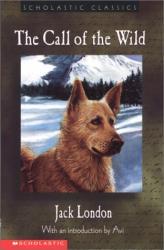
I was required to read The Call of the Wild for my Literature class. The story is about a lovable St. Bernard dog named Buck. At the start of the story, Buck lives in the cushy and comfy house of Judge Miller, but eventually winds up in the wild North of the Yukon. Serving as a sled dog, Buck passes through many owners, good and bad, and learns to answer the Call of the Wild. Overall, it was a pretty good book, but I would only give it Three Star review for these reasons:
1: As it is a classic, the book was written with an older style of English, which can be a little hard to understand. Older English can also take away some of the gravity in pressing situations.
2: There wasn’t quite as much action as I would have liked.
3: I enjoyed the book, but some of the action scenes may have been ruined by the Older English, although the Older English gives the reader a taste of how people communicated in the past. However, the characters, plot, and setting were developed well, so overall, Call of the Wild is a classic, and a quality work of literature, which still can be enjoyed today.
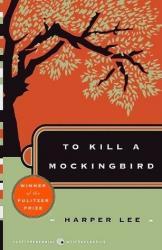
"To Kill a Mockingbird" is an essential piece of literature. It tells a story that highlights the darkness of America's past, through the innocent eyes of a young girl. With this type of narrator, who almost only understands pure truth, joy, and rage, it is possible for readers to feel what she feels, and be brought into her small world (Alabama during the Great Depression) with simple, yet beautiful writing. The story itself is touching, and focuses on themes of family, racism, and solidarity. Aside from its essentiality in explaining America's history, it also can be read as a coming of age story, where the characters begin to see the harsh reality of the world in which they grew up, and in which they created lasting memories and relationships. It will make you laugh, cry, and feel.
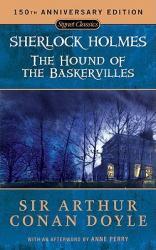
The Hound of the Baskervilles is another outstanding Sherlock Holmes novel. After wealthy landowner Sir Charles Baskerville is found dead, Sherlock Holmes and Dr. Watson must investigate the rumors of an otherworldly hound with glowing eyes and jaw. The Hound of the Baskervilles once again showcases Sherlock Holmes brilliant deductive capabilities and the mental chess-match he plays with villains. However, this novel also shows Dr. Watson's wit and all that he has learned throughout his years with Holmes.
This gripping adventure will keep you on your toes and leave you guessing until the very end. I highly recommend this book for any fan of classic mystery novels.
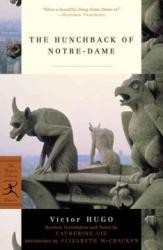
The Hunchback of Notre Dame is about four men who are captivated by a mysterious gypsy dancer. The story begins on a holiday where a play is going on until everyone becomes distracted by the gypsy girl dancing in the square. This is where we meet Esmeralda the gypsy and Gringore the playwright. Many things happen until Esmeralda ends up meeting Pheobus, a soldier, who is very egocentric, when he saves her from the deformed bell ringer - Quasimodo - and a priest named Claude Frollo. Esmeralda is soon accused of witchcraft and is sentenced to be hanged. Fortunately, she is able to find shelter in Notre Dame before that can happen. Many want to kill her, but some want to save her.
I had to read this book for school, and my English teacher recommended it. And the first chapter was not very interesting so I became skeptical, but at the end, I thought the book was really good. There are some parts where the author goes into detail about a location to better help set the scene, and this is where I struggled to focus on the book, but you should push forward because the story line is worth it. The Disney movie did not do this book justice and there is some adult-themed content in the book so I would not recommend this book to middle-schoolers or younger. I do think that sooner or later, everyone should at least give this book a try because it really made me think.
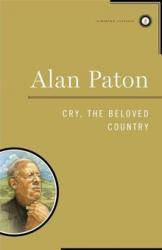
Cry, the Beloved Country is a very good novel. It depicts the lives of Reverend Stephen Kumalo and white landowner, James Jarvis, during a time of turbulence in their lives. All of the characters in the novel are extremely well written and the character development is superb. The conflict in the novel feels very realistic and thrills the reader. The moral decisions and emotions faced by the two protagonists feel very weighty and captivate the reader. Overall, the book is a great novel that I would recommend to anyone.
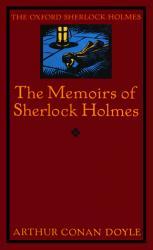
The Memoirs of Sherlock Holmes is a masterpiece of short stories. Sherlock Holmes continues to dazzle readers with his incredible deductions in these eleven short stories. From the beginning of Holmes' career in "The Gloria Scott" to large-scale crimes in "The Naval Treaty," the Memoirs of Sherlock Holmes. The introduction of Sherlock's brother, Mycroft, and his most notorious nemesis, Professor Moriarty, ensure that readers will be captivated by these stories. The Memoirs of Sherlock Holmes is phenomenal and I highly recommend it for any fan of Sherlock Holmes or crime fiction.
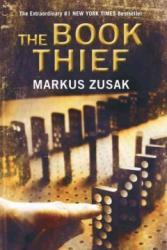
The Book Thief by Markus Zusak is my favorite book of all time. The story follows a young girl named Liesel Meminger growing up in Nazi Germany. Her love of books progresses throughout the plot, and the cast of characters she meets along the way help make the story the loveable masterpiece I know it as (personally, my favorite characters include Max Vandenburg, Rudy Steiner, and Hans Hubermann). This book is historical fiction, but I recommend it for most (if not all) readers. I typically read fantasy books, but I adore The Book Thief. The plot isn’t fast paced like adventure stories, and the events are on the ordinary side, but in my opinion the author does a brilliant job with descriptions and human connections within the book. Another reason I love this book is the use of the narrator--the way colors are described and the story is told is unique and wonderful to read. It’s a story about WWII told in a different perspective than other books we typically read at school, such as Night by Elie Wiesel or The Diary of Anne Frank. Even if you don’t particularly like the historical fiction genre, I would recommend giving this book a try. I first read it in 6th grade, but it is definitely not a story for just children. It is good for any age, and common sense media rates it for kids 13+.
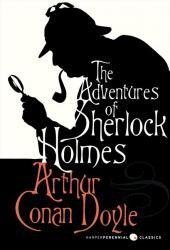
Sherlock Holmes and his assistant Dr. Watson have captivated audiences for generations. This collection of twelve short stories is fantastic. From stolen jewels to mysterious circumstances and brilliant crimes, The Adventures of Sherlock Holmes has it all. The Adventures of Sherlock Holmes is full of mesmerizing deductions and wonderful short adventures. I highly recommend this collection of short stories for every Sherlock Holmes fan and anyone searching for great mystery novels or short stories.
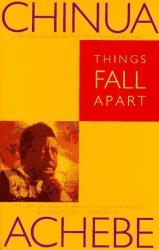
“Things Fall Apart” follows Okonkwo as he becomes a very successful man with many yams, several wives, and political power in Umuofia. The whole first part of the book focuses on his characterizing Okonkwo and showing what tribal culture was like. The author uses subtle references to Europeans to set up the main conflict of the book, European culture. Before the Europeans reach Umofia, Okonkwo accidentally kills a clansmen and is exiled. For the period of his exile, Okonkwo watches from the outside as his own village is changed radically by Christian missionaries.
Overall, I think this book is worth a read for the powerful theme, it wasn’t something I would want to read again because so much of the book was just about life in Umuofia, which was a bit mundane. Onkonkwo was also a pretty static character, there was no character development either. He just wanted to be the opposite of his father, was very strict, harsh, and closeminded. I did like the metaphors and proverbs in the book. I remember a metaphor that stood out in particular was, “Living Fire begets cold,
impotent ash.” I also enjoyed the later portion of the book where the Europeans missionaries arrive and the Onkonkwo provides a different perspective on the situation, and the theme is more clearly defined and developed.
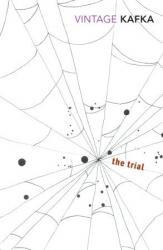
The Trial is a brilliant novel. Throughout the story the reader follows K., the protagonist, who tries to figure out what he was arrested and charged for. On his journey, K. meets several different types of people all which contribute to the book's questioning of bureaucracy and totalitarianism. Its finale left me a bewildered state, probing at the depths of existence and reality. Whether or not this feeling was a good one, I cannot tell, however Kafka's ability to use the mysteries of existentialism and expand upon them is truly amazing. I highly recommend this novel.
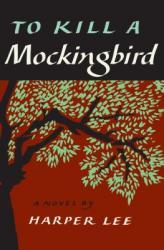
To Kill a Mocking Bird is about the racism and false accusations towards African Americans in the 1930s. The book is for a more mature reader because of the language used and some of the ideas that are introduced. I would highly recommend this book to anyone interested in learning more about the racial prejudice in the south in a book with a good plot. The characters are also relatable to a reader which I really enjoyed. Overall I think Lee did an amazing job writing this book.
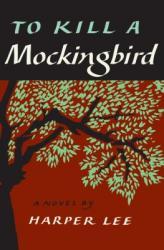
I read this book my freshman year of high school and there are some really interesting parts to this book involving suspense, murder and mystery but the book can be a little confusing if you don’t really pay attention. This book is very well written as it’s showed us how it was during this time period, giving us a whole perspective on how the characters were feeling at this point of time. The characters in this book do have to deal with a couple of problem which some don’t really go their way for example the whole situation with Tom Robinson. Although this book is well written it does carry some inappropriate language include a very discriminatory word, but you do have to keep in mind that this book was written in a very controversial time where saying the n-word wasn’t really frowned upon (not say that is was right). I wouldn’t recommend this book for children because it’s does deal with murder and rape but other than that it is a very good book.

Pride and Prejudice by Jane Austen is my favorite book of all time-- which isn't a phrase I throw out lightly! This book truly has the best of all worlds-- a wonderful romance, lovable characters, humor, and beautiful writing. Pride and Prejudice is the story of a young woman in the 1800's, Elizabeth Bennet. The Bennet family has five daughters, and in an age where the only thing women could do was marry rich, all the girls are pressured to find wealthy matches to secure the family's comfort. Elizabeth, however, refuses to marry the first man the comes along, and only marry when for love. She meets brooding, silent, proud and very rich Mr. Darcy, who at first has no interest in Elizabeth. Over time, he begins to fall in love with her wit and charm. Elizabeth thinks Darcy is the last man she could ever marry, but through the course of the novel, begins to see that her prejudices towards him are fake and that he is a true gentleman who is only shy. The questions remains-- will they overcome their pride and prejudices and get married? I'm not a huge fan of 'classical classics' where the writing style is dull and hard to understand. I was so pleased to find that this is not the case with Austen's writing style. I enjoyed every single page of this wonderful novel, and truly did not want it to end! I will certainly be reading more Austen! I would recommend this book to anyone-- fans of romance, family-oriented stories, comedies, fans of classics, and even reluctant readers of classics who would like an easy gateway into the world of classic novels.
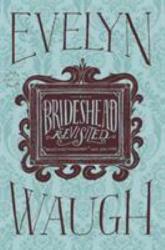
This is the book to read when you're up for lofty prose fiction that's readable, sophisticated, and becomes gradually more and more that of a delightful meandering upon a grandeur of intricate reminiscence, which, though, it may seem a meandering at first, reveals itself soon to be very much otherwise, instead, the exact opposite—this author never wanders, never guesses, but totally knows where he's expertly taking you—Evelyn Waugh, I realized, was truly a master, he absolutely wins the contest for your literary respect, telling, not a delightful, but a painful story remembered in part from the initial mobilizing of the second world war back to the 1920s, with a thoroughly nostalgic march forward in time from then, a growing up story in an exceedingly high society, I mean, not just aristocratic, like you'd expect in a novel written in the kind of British high style of Brideshead Revisited, but cream of the crop top, the tiptop aristo-of the-cratic. Waugh's writing is proportionately as great as this reviewer's is stilted. This book deserves your time. I put off reading it for a long time. I thought it might be impenetrable. I wonder what's like to listen to?
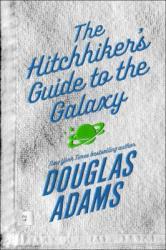
Five stars (If you don’t laugh at this, then I don’t know what cave you’ve been living in) The HitchHiker's Guide to the Galaxy is a sci-fi comedy so specific that it is funny. Between the absurd circumstances and the very specific jokes, I couldn’t stop laughing. The start of the book is normal, but once you get into it it keeps you laughing as it gets weirder and weirder. The events that happen are so improbable that it turns it the other way and makes it very probable. When reading the Guide, don’t forget your towel!
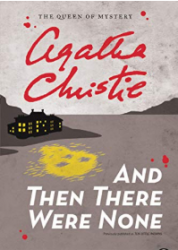
A stand alone mystery from the great Agatha Christie. This mystery is
inspired by an Olde English nursery rhyme about ten little soldiers. Reading
the poem can give clues as to what is happening and what happens next but the
mystery is bamboozling and enthralling the whole way through. It is a
complicated psychological thriller that takes an epilogue to understand.
Thrilling from start to finish.
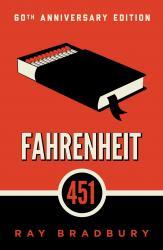
Fahrenheit 451 follows the story of a fireman, Guy Montag, who lives in a dystopian society. His job as a fireman is to locate all books around the city and burn them. Books are banned from any individual and is considered to be an inferior type of entertainment in comparison television, which are more supported by the public. As Montag continues to burn more books throughout his job over time, he deals with a variety of external factors that changes his brainwashed and disillusioned perspective to considering books and their significance to society. Being a firemen in this dystopian society, Montag must deal with a plethora of barriers that are blocking his way before he can truly understand the importance of books and to keep them.
Fahrenheit 451 is an intriguing book that takes a different approach in a dystopian society. Instead of implementing a militaristic and governmental style, Bradbury uses firemen which encapsulates a unique and captivating plot line. Fahrenheit 451 demonstrates a story that everyone can enjoy, especially for those who enjoy reading dystopian novels. Bradbury effectively relates character development of Montag to the series of events that occurs. This coherent relationship that virtually happens side-by-side further produces a sense of immersion for the reader.
Personally, I enjoyed Bradbury's Fahrenheit 451 novel. It is considered to be one of his best, and most iconic books that he has written to date. I highly recommend any average reader to consider reading Fahrenheit 451. The book is not too long, but it will still produce an immense amount of quality and satisfaction in the end.
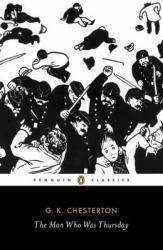
On the surface, The Man Who Was Thursday has all the markings of a witty thriller satire. Unfortunately, as the subtitle of this work is “A Nightmare,” things don’t necessarily stay coherent to the end. It’s not that The Man Who Was Thursday is terrible, but rather that it loses focus and becomes absurd the longer it continues. And perhaps that’s the greatest tragedy of this book: that it could have been a solid story if it didn’t devolve into a nightmare at the end.
I certainly liked plenty of aspects of the early parts of this book. Infiltrating an anarchist society with day-of-the-week codenames. The revelation that few members of said society were actually who they said they were. The conspiracy and twists as the protagonists and antagonists get flipped on their heads. Of course, this last bit is when things started going downhill. Perhaps it’s that odd British humor that influenced the weird bits, but the story probably could have done without all the randomness near the end. In fact, making the whole thing into a nightmare lessens the overall impact of the story, since there is doubt that any of it happened at all.
I’m sure that books like The Man Who Was Thursday require extensive footnotes and analysis to understand. I’m sure this book is assigned to English classes as an example of deep and thoughtful prose. The problem is that I’m mainly reading for entertainment. I don’t have the time to sit down and pore over all the analysis of a book like this. For my money, I think I’ll stick to the James Bond series for spies with code names infiltrating secret societies. At least then, I know the result is closer to reality than whatever this book contains.
A weird book that could have been an excellent thriller satire, I give The Man Who Was Thursday 3.0 stars out of 5.
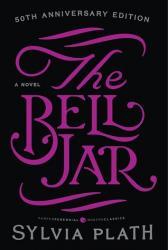
This semi-autobiographical novel is a searing portrait of mental illness. So dark and honest, it brings the reader in to the protagonist's descent into madness and her rise from it. The description of a mental hospital in the 50s was very interesting to me. This was before anti-depressants so many more people suffered there than suffer now. I was particularly fascinated by her description of electroconvulsive therapy. Overall a powerful novel by a one of literature's great writers.